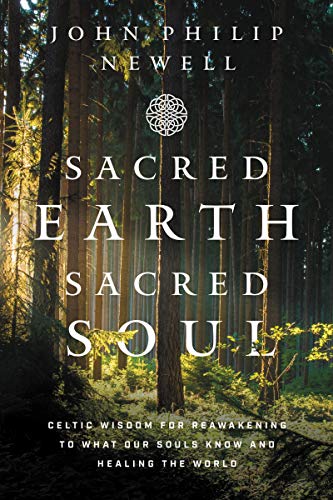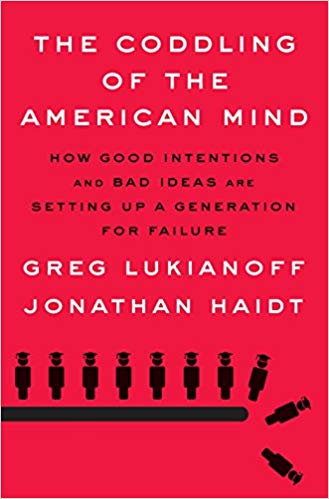The book in a nutshell: If it’s not Celtic Christianity, it’s crap! (This sentence sounds best if said with a Scottish brogue)

The big sell of this book: If you think you can’t be a Christian because Christianity is anti-environment, anti-women, anti-sex, overly judgemental, and rigidly dogmatic, then Philip Newell has some good news for you!
An ancient stream of Christianity exists that believes the earth and all that is in it is sacred and to be protected, not exploited. From its earliest days in Gaelic lands, this version of Christianity empowered and released women as equals to men in ministry. In this system, the body is sacred. Dancing and loving touch are to be celebrated, not feared or hidden. The scintillating prayer from the ancient Carmina Gadelica
“Would that he was stretched on my breast with his body against my skin.”
is not unchristian, unholy, or out of bounds in any way.
Do you feel uneasy with the doctrine of original sin, total depravity, and eternal damnation? No problem, Celtic Christianity hasn’t been a fan of those things for over 1800 years! Feeling uncomfortably locked in by dogma and inflexible truth? No worries. Celtic Christians consistently resisted priestly orders preferring to be unaffiliated as they traveled around sharing the gospel. They prioritized listening to the inner soul more than a doctrinal statement. Truth to them was not so much a fixed final authority as it was a flowing stream revealing new things.
Newell admits a vast difference between what he calls “Imperial Christianity” and its Celtic cousin. He understands why the Celtic stream of faith was persecuted for centuries. But he is happy to report a major resurgence of Celtic faith in recent decades. He writes to reassure readers that this version of Christianity is neither some sort of cheap paganism with a Christian vainer nor something new and made up to fit the times. Newell is here to tell us that going Celtic with your Christianity is legit!
The skeptic in me lurches forward. This brand of Christianity is being created to fit the moral consciousness of our modern era — how convenient. But then the historian in me battles back. Newell has done his homework. He’s not making this stuff up. This Christian tradition exists, and make no mistake, says Newell, it’s definitely Christian.
I’ve talked about the history of the spilt in other places, check here if interested.
- The Sacredness of the Earth
- “Heaven is to be found in the things of earth” — Iranaeus
- The little book is scripture, and the big book is nature — Alexander John Scott
- As they bowed to the sun and moon, they addressed the light within all lights that lights all life. But to Orthodox Christianity, this smelled too much of paganism, so it had to be resisted.
2. Fundamental Goodness of Humanity
- Pelagius landed in Rome with a non-approved haircut and a hankering to teach women. It’s not surprising that he wasn’t well-received. He believed that grace was needed not to deliver the naturally sinful human but instead reconnect him to his natural self whose core is fundamentally good like God, his creator.
- From Pelagius onward, the emphasis of Celtic faith has been human sacredness more than sinfulness. The deepest part of us is not opposed to God.
- Even Satan, because he is a creation of God, might one day come back to his good true self.
- Grace does not change our nature. Grace scrapes off the black stuff, which hides our true good nature.
- Grace does not banish our true nature. It awakens it. — John Scotus Eriugena
- Alexander John Scott says that blight on a plant does not define its nature, nor does sin on a human.
Blending Religion is better than bashing it
- There is an undeniable connection between the Scottish islands and India! Ancient Gaelic has similarities to Sanskrit, and the old Gaelic prayers are similar to Hindu ones in that they value the universe and the sacred soul. When the Celts Christianized these prayers and songs, it is easy to see why Imperial Christians viewed them as unacceptable. They have the smell and feel of Eastern religions. But to Newell, this makes the prayers so much better; they have been redeemed. (I wish I knew the ancient connection between India and Scotland/Ireland, does anyone?)
3. No angry God allowed
- The idea of paying someone off for forgiveness to satisfy God’s wrath through the death of his son is the opposite of love — Pierre Teilhard de Chardin.
- George Mcleod – Salvation is making the world whole again.
Negative Conclusion: In some ways, this book feels divisive. When I read Newell, he comes off to me as believing. “If it’s not Celtic Christianity, it’s crap” I’m not willing to say that at all. I also can’t get away from how convenient it is that there is a version of Christianity checking all the social/moral boxes for what matters to people of our day. It feels too good to be true. I can become a Celtic Christian and effortlessly dump in the trash bin all the unhelpful baggage those imperialist Christian bastards have laid on me for the last 2000 years. — really? Is the story that simple? I don’t believe it is.

Positive Conclusion: The historical thread seems to support Newell’s claims. I like what I’m hearing; what’s not to like? But is it Christian? Newell assures me that it is.
Evolution of Religion? I think it’s safe to say, that religion evolves over time. Is Celtic Christianity the long-awaited evolution of our faith? The seeds of it have been here all along, but now perhaps the climate is right for it to burst forth – sure seems like it. I see Celtic influences in all corners of our Christian faith nowadays.





